Jan 2021 Edition
Jan 2021 Edition Estelle Greeff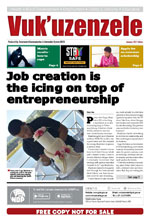
Translations
Job creation is the icing on top of entrepreneurship
Job creation is the icing on top of entrepreneurship vuyelwanPastry chef Gugu Mazibuko (25) is building a reputation as a cake decorating king in Pietermaritzburg, KwaZulu-Natal (KZN), where he runs his own confectionery business.
Mazibuko grew up in Ulundi in northern KZN. His mother was a good baker and this inspired the young Mazibuko to pursue a career in food.
“I knew that I wanted to be in food, but I didn’t know which path I wanted to take. I went to several different colleges before I eventually discovered that working with pastries was what I wanted to do,” says Mazibuko. 
Mazibuko studied to be a pastry chef through the International Hotel School, and then discovered a love for cake decorating.
“I didn’t know if cake decorating could actually be a full-time career for me but, funnily enough, I gained inspiration from the TV show Cake Boss, where this guy had become very successful with his cake decorating. This gave me some motivation to start my own business.”
Mazibuko started advertising his services on social media, and then word began to spread about his business.
Gugu the Baker, as he is known in Pietermaritzburg, now creates a variety of beautifully decorated cakes for special occasions, such as weddings, birthdays and anniversaries, and also makes other small pastries for clients.
“I love the creativity of decorating cakes. Every client comes in with a different style and decoration that they are looking for, so there is a new challenge every day,” says Mazibuko.
Mazibuko has also started running his own cake decorating workshops, teaching others the joy of creating their own unique cakes.
Operation Vula gives a boost
Thanks to his hard work, Mazibuko was awarded R200 000 in funding from Operation Vula, an initiative of the KZN Department of Economic Development, which seeks to uplift small businesses.
“The funding will be very helpful for investing in machinery and growing my business. I want to expand and employ more people. I also want to get into the retail space, whether it is opening my own shop or partnering with bigger retail shops to sell my cakes and grow beyond KZN and to the rest of South Africa,” he says.
Mazibuko had previously employed eight people but had to scale down as a result of the Coronavirus pandemic.
He has some pearls of wisdom for young people who want to start their own small business: “I think the greatest thing to understand is that you need credibility. You need to prove to clients that you are trustworthy and professional, and that you can deliver on your promises. Your good reputation will spread through word of mouth.”
Small businesses crucial to South Africa’s future
Small businesses such as Gugu the Baker are exactly the type of enterprises that South Africa’s government is seeking to support as part of the Economic Reconstruction and Recovery Plan.
In announcing the plan, President Cyril Ramaphosa said that small, medium and micro enterprises (SMMEs) will be crucial to the economic growth of the country.
“A central pillar of this work is the transformation of our economy, creating space for new black and women entrants and taking deliberate steps to change ownership and production patterns. In promoting localisation and industrialisation, we will be focusing in particular on the development of small, medium and micro enterprises,” said President Ramaphosa.
He pointed out that there are between 2.4 million and 3.5 million SMMEs in the country, which can contribute greatly to employment creation and economic transformation.
“Through a focused support programme, we will support SMME participation in the manufacturing value chain. This will include the targeting of specific products for manufacture by SMMEs for both the domestic market and for export. It will also include the provision of business infrastructure support, financial assistance through loans and blended funding, facilitating routes to market, and assistance with technical skills, product certification, testing and quality assurance.”
Where can small businesses apply for funding?
Government offers various opportunities for SMMEs to apply for funding and support:
Small Enterprise Development Agency – Visit seda.org.za or call 0860 663 7867.
National Empowerment Fund – Visit www.nefcorp.co.za or call 0861 843 633.
National Youth Development Agency – Visit www.nyda.gov.za
Department of Trade and Industry – Visit www.dtic.gov.za or call 0861 843 384.
NSFAS to cover expenses for students finishing in 2021
NSFAS to cover expenses for students finishing in 2021 vuyelwan
The National Student Financial Aid Scheme (NSFAS) will cover funds for students who need more time to complete their 2020 academic year.
NSFAS did not receive additional funding from government due to South Africa’s difficult economic situation.
However, NSFAS will now release the additional funding from its own coffers.
According to Higher Education, Science and Innovation Minister, Dr Blade Nzimande, the department had asked NSFAS to identify funds to support the extended academic year.
“This was done within the existing allocations to the entity, and taking note of the crucial fact that there has been a significant increase in the number of university students qualifying for NSFAS funding in 2020.”
Minister Nzimande says he was pleased that NSFAS managed to acquire funding to support living allowances such as meals and personal expenses.
“This money is not for the things I shall not name,” he says. He is urging students to spend the money wisely and responsibly.
“You spend it wrongly, you destroy your future easily,” he warned.
Meanwhile, 25 universities are set to start the 2021 academic year at end of March 2021 and one university will start in April.
He says NSFAS will work closely with universities to identify the students affected and the extended time for each student that requires support.
“Universities will have to provide this necessary information to NSFAS to enable the allowances to be expeditiously processed,” he added.
University fees
Meanwhile, the department is working towards a policy framework on the regulation of university fees.
However, according to Minister Nzimande, the process has still not been concluded for the 2021 academic year due to the uncertainty sparked by the Coronaviruspandemic.
According to Minister Nzimande, the department is proposing a further “fee compact” to public universities, continuing what has been in place for the past few years.
“The intention of these fee compacts is to ensure fee increases are kept at affordable levels, while also ensuring that universities are able to remain sustainable,” the Minister explained.
SAnews.gov.za
SA overcoming HIV and Aids
SA overcoming HIV and Aids vuyelwan
As we continue our efforts to manage the devastating Coronavirus pandemic, we cannot ignore the other public health challenges that our country faces.
For more than three decades, our country has been engaged in an ongoing struggle against HIV and AIDS, which has cost many lives and caused great hardship and suffering.
Since the outbreak of COVID-19 in the country, with the nation-wide lockdown and the pressure on our health facilities, many HIV, AIDS and tuberculosis services have suffered. This has posed a challenge for people testing and starting antiretroviral treatment. Many people found it difficult to collect their medicines and fewer people accessed other services, such as voluntary male medical circumcision. 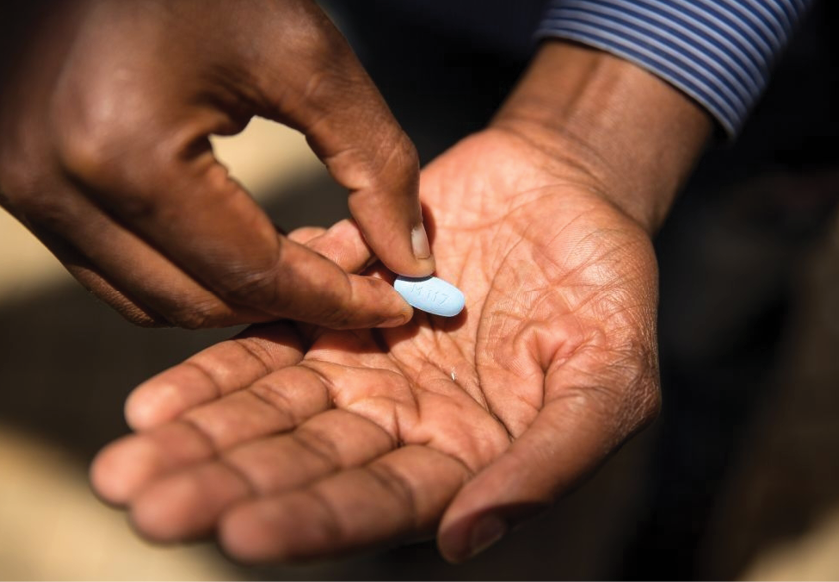
At the same time, there are many lessons that have been learnt from our public health response to the coronavirus pandemic that can strengthen our fight against HIV and TB.
South Africa continues to have the largest number of people living with HIV in the world. It is encouraging, however, that over the last decade we made progress in reducing the number of new HIV infections in the population by nearly 60%.
It is also encouraging that HIV infections in adolescent girls and young women have significantly declined in the last decade. This is a crucial group because they are much more likely to be at risk of getting HIV.
Our treatment programme has contributed to a reduction in the number of deaths due to AIDS by 60%. There has been a greater reduction in HIV-related deaths among young people.
It was possible to reduce the number of deaths because we, together with our partners, have rolled out an extensive antiretroviral programme reaching millions of people living with the disease.
At the beginning of the decade, our programme to prevent mother to child transmission (PMTCT) of HIV had very low coverage. Now we have one of the highest rates of coverage of PMTCT in Southern Africa, which has substantially reduced rates of infection among children.
While we have reduced deaths and new infections, we still are far from reaching the goal we committed ourselves in 2016 of achieving a 75% reduction in HIV infections by 2020. If we succeed in doing so, we are likely to end AIDS as a public health threat by 2030.
Unfortunately, we are not there yet. We have to do far more to ensure that young people are empowered to prevent infections, including through changing behaviour, accessing condoms and testing regularly. We need to make sure that everyone who is infected has access to treatment and care.
We need to work harder on HIV prevention among key populations, including sex workers, men who have sex with men, and people who inject drugs. We must end the stigma and discrimination towards these populations. We cannot hope to end HIV if we ignore the needs, concerns and rights of any part of our population.
South Africa needs to increase efforts to medically circumcise young men to reduce their risk of acquiring HIV. Unsafe circumcision should not leave young men with lifelong health problems, and no one should die from circumcision. We must make sure that young men have safe circumcision.
We are encouraged by findings of a recent study on pre-exposure prophylaxis (PrEP). Unlike antiretroviral treatment that is given to people who are HIV positive, PrEP involves the regular use of antiretroviral drugs by HIV negative people to prevention infection. The study, conducted by scientists from the HIV Prevention Trials Network, found that long-acting injections once every eight weeks was better than the daily tablet used for HIV prevention. These findings have the potential to significantly strengthen our response to the epidemic.
If we are to succeed in ending AIDS as a public health threat within the next decade, we need to combine these medical breakthroughs with fundamental changes in behaviour. We also need to tackle the economic and social conditions that contribute to high rates of infection.
One of our central tasks is to empower adolescent girls and young women, educationally, economically and socially. They need to be able to make their own decisions about every aspect of their lives, including their sexuality and sexual behaviour.
Ultimately, we will achieve the end of AIDS through the empowerment of young people, women and other people at risk. This includes empowerment through access to information, advice and support. It includes access to education and economic opportunities, especially for young women. Empowerment also means that every person must have access to testing, treatment and other health services.
The people of South Africa have come so far, endured so much and made such great progress in the fight against HIV, AIDS and Tuberculosis. Let us intensify both our resolve and our actions to confront and overcome AIDS once and for all.
Matric results -how to cope
Matric results -how to cope vuyelwanAs we head into 2021, the matric class of 2020 will be eagerly awaiting their final exam results. While many teens will celebrate this new phase in their life, some could feel alone and isolated if they failed or didn’t do as well as they hoped.
According to the South African Depression and Anxiety Group (SADAG), almost one in ten teen deaths in South Africa are caused by suicide. One of the triggers could be exam disappointment. 
“Matric is like running an obstacle course and matrics are pushed to their mental, physical and emotional capacities. If they don’t have the right coping skills and support systems, they are more at risk of experiencing mental health challenges,” says Clinical Psychologist Candice Combrinck.
Parents can offer comfort and reassurance to matriculants and that it’s normal to feel disappointment, worry, anger and sadness about their results, says Combrinck.
Teen suicide warning signs
- Depression: Feeling hopeless, losing interest in doing anything and withdrawing from friends and family.
- Talking or joking about suicide: Talking about dying or threatening to kill themselves.
- Preparing for death: Many teens planning suicide will give things away or say goodbye.
- Self-criticism: Saying things like “I can’t do any- thing right.”
- Risk-taking behaviour: Doing risky, dangerous things like having unprotected sex or taking drugs.
- Excessive feelings of guilt, self-blame, failure.
- Suddenly feeling better: If someone you know has been very depressed, haven’t been for treatment and suddenly seem back to normal, it might mean they have set a date for their suicide.
Tips for Teens
Depression can make you feel exhausted, worthless, helpless and hopeless. If you are suffering from depression, try to:
- Understand depression so that you know what you are dealing with.
- Do things to keep your mind busy and things that make you feel better, like exercise.
- Set realistic goals.
- Break large tasks into smaller ones and do what you can.
- Try to be with other people and confide in someone you trust.
- Keep a diary or journal. It’s a great way to get your feelings out.
- Let your family and friends help you.
If you are feeling suicidal:
- Tell someone immediately or call the SADAG Suicide Crisis Helpline.
- Make sure you are not alone.
- Don’t use alcohol or drugs.
- Ask family and friends to lock knives, ropes, pills and guns away.
- Keep pictures of your favourite people with you.
The Department of Basic Education's Second Chance Matric Support Programme gives you the opportunity to achieve or improve a matric qualification.
Contact the toll-free SADAG Suicide Crisis Helpline at 0800 567 567.
Donate blood, save lives
Donate blood, save lives vuyelwanYou can save three lives by simply donating one unit of blood.
This year the South African National Blood Service (SANBS) ran critically low on blood stocks due to the Coronavirus disease (COVID-19) restrictions that severely limited the SANBS’ ability to collect adequate blood stocks.
“We are doing our utmost to continue to maintain adequate blood stock levels to service the needs of our country. The high demand for blood requires that we work even harder together to ensure that no lives are lost due to blood shortages,” says Ravi Reddy, the SANBS’ Chief Operations Officer.
Every blood donation makes a difference
Thousands of people would die daily if there was not enough quality blood in stock.
Without blood, medical treatment for children with life-threatening anaemia; trauma victims; women with pregnancy-related complications; organ and bone marrow transplants; complicated surgical procedures; and cancer treatments would not be possible.
“While some South Africans may not be able to donate blood, they can assist us in collecting much-needed blood.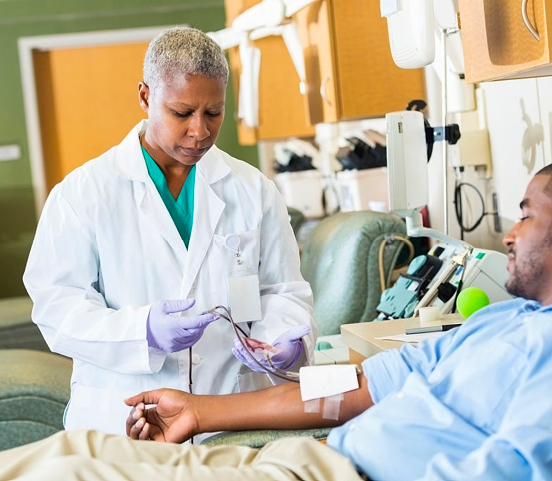
“In our networks of friends, families and colleagues, there will always be someone who is able to donate blood. Partner with us and lend a hand by urging healthy, eligible blood donors to donate and help prevent shortages,” says Reddy.
SANBS aims to collect 3 000 units of blood a day to ensure a safe and sufficient blood supply.
Who can donate blood?
To donate blood, you must:
- Be between 16 and 75.
- Weigh a minimum of 50kgs.
- Be in good health.
- Lead a low-risk lifestyle.
- Consider your blood safe for transfusion.
- Have had a balanced meal within four hours of donating blood.
- Not have donated blood in the past 56 days.
A screening test will be conducted before you donate blood to ensure that your blood pressure and haemoglobin (a red protein responsible for transporting oxygen in the blood) levels are within a safe range.
The SANBS also has a quick online quiz that you can complete to see if you can donate blood. Visit www.sanbs.org.za/can-i-save-3-lives-today to take the quiz.
There are many SANBSblood donation centres across the country. To find the location closest to you, visit www.sanbs.org.za or contact thecall centre at 0800 11 9031.
Good news for women-owned businesses
Good news for women-owned businesses SiboneloGovernment has put various initiatives in place to ensure female economic empowerment. 
Government aims to ensure women empowerment by allocating 40% of the services it needs to women-run businesses. This will also play a part in ending gender-based violence and femicide (GBVF).
According to the Minister of Women, Youth and Persons with Disabilities, Maite Nkoana-Mashabane, several actions have been taken towards building women’s economic empowerment.
“As a country, we have made a commitment to earmark 40% preferential procurement to women-owned businesses nationally.
“A central coordinating mechanism has been curated with a national procurement task team coordinated by the Presidency to ensure that key actions are taken to achieve this target,” the Minister said.
She added that initiatives aimed at fast tracking the empowerment of women-owned businesses to take up these opportunities have been developed and implementation started in December.
At the launch of the 16 Days of Activism for No Violence Against Women and Children campaign in November, Minister Nkoana-Mashabane called on the nation to play their part in ending GBVF. She said this can be done by establishing a society where men and women enjoy equal rights and eliminating the system that exploits women.
Social Development Minister Lindiwe Zulu added that the Inter-Ministerial Committee on GBVF has adopted the 365 Days of Activism campaign for No Violence Against Women and Children.
The committee is part of the Justice Crime Prevention and Security cluster’s effort to fight the scourge of GBVF.
“We have 365 days’ plans that are reviewed annually and we conduct ongoing campaigns on GBVF that target people in different age groups, particularly women and children considering their vulnerabilities,” said Minister Zulu.
The 365 Days Child Protection Programme of Action seeks to strengthen government’s commitment and response to prevent and protect children against violence, child abuse, neglect and exploitation.
The purpose is to scale up interventions geared towards the promotion and protection of children’s rights during the Coronavirus and beyond.
“Any form of violence against women and children, be it physical, emotional or sexual, is an insult to our basic decency and humanity,” Minister Zulu said.
Being LGBTI+ is not a choice
Being LGBTI+ is not a choice SiboneloSome South Africans are still being brutally attacked, insulted and rejected because of who they are, how they express themselves and who they love, says Out Well-being.
One example is a teenage girl who identifies as lesbian. She was struggling to accept herself, being victimised at school by teachers and peers and made several attempts to end her life.
Thankfully, with support from OUT Well-being – a non-profit organisation dedicated to building healthy and empowered lesbian, gay, bisexual, transgender and intersex (LGBTI+) communities in South Africa and internationally – she has turned her life around.
“The girl has a conservative family and feared she would be rejected. She approached her school’s social worker, who contacted us for assistance. After several counselling sessions, her confidence, self-worth and belief in herself started to show.
“She came out to her parents and started a safe space for queer learners. Her coming out empowered her sibling to do the same, which demonstrates that all one needs is support from parents, teachers and peers,” says Out Well-Being’s Paralegal Officer Moude Maodi-Swartz.
Bullying can be classified as harassment, which is a criminal offence in terms of the Protection from Harassment Act (1997). “Bullying based on sexual orientation constitutes unfair discrimination and hate crimes, which is prohibited by Section 9 of the Constitution,” says Maodi-Swartz.
“The most effective and important way that parents of LGBTI+ children can assist is by loving their children unconditionally, accepting them and giving them the utmost support,” says Maodi-Swartz.
Parents should walk the journey with their child, taking the time to understand what they are going through and reaching out to LGBTI+ organisations.
“When parents are proud of their child it empowers them to live their life positively and to conquer it, even in the most disenabling circumstances.”
Advice for Teens
“The most important thing to remember is there is nothing wrong with who you are. The wrong lies in the harmful views society has about the queer community,” says Maodi-Swartz.
To teens who are still confused about their sexual orientation, Maodi-Swartz says:
- Take time to understand and accept yourself.
- Learn about sexual and gender diversity.
- Do not give up on life if you are rejected after coming out. Sometimes parents need time to process information.
- Seek mental health support if you are struggling.
- You don’t have to come out. Being queer is not a choice. The only choice you have is whether you want to live your life openly or not.
“The youth as future leaders should avoid repeating the injustices perpetrated against a community that cannot change who they are,” says Maodi-Swartz.
All of OUT Wellbeing’s services are free of charge. Visit www.out.org.za for more information.
Empowering tourism graduates
Empowering tourism graduates SiboneloTourism Green Coast (TGC), an award-winning government youth tourism programme, has helped youth from the Wild Coast find employment or start their own business in the tourism industry. 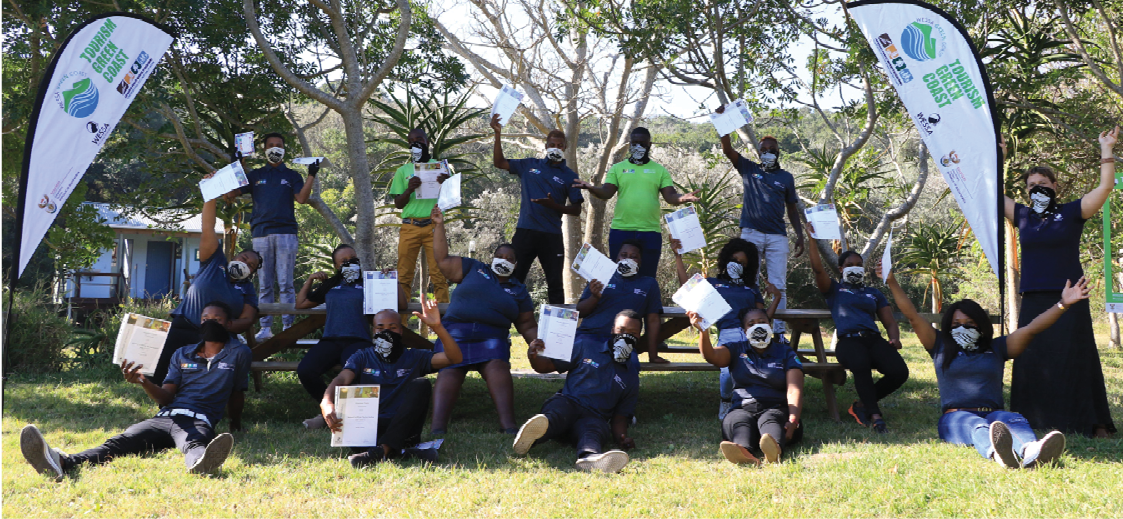
TGC is part of the Department of Tourism’s Expanded Public Works Programme and is being implemented by the Wildlife and Environment Society of South Africa (WESSA).
In July, 119 youth from the Eastern Cape obtained a National Certificate in Tourism Guiding as a result of the two-year programme, which helped them to develop skills and gain work experience at various tourism establishments along the Wild Coast.
“The Green Coast Stewards participated in a comprehensive training programme, with accredited and non-accredited courses. They attended contact sessions and applied new knowledge and skills through workplace assignments and practical activities, such as Green Coast monitoring, coastal clean-ups and environmental education targeting communities and local schools,” says Kerry Mclean, WESSA project manager.
Thirty-two of the youth have found permanent employment and seven have registered their own businesses, while the rest want to start their own business or further their studies in 2021.
“We were inspired by the number of participants who have or are attempting to start their own business. It is our hope that as tourism resumes, these budding entrepreneurs are supported sufficiently to make a success of their enterprises. We also hope more jobs will become available and that our graduates will gain full-time employment,” says Mclean.
As it has made such a positive impact, the TGC project was a Gold Winner in the biodiversity category of the 2020 Eco-Logic Awards.
One of the graduates, 28-year-old Sanelise Dasoyi from Coffee Bay, says the TGC programme helped her on many levels.
“I was able to pay my UNISA fees for nature conservation studies and secured permanent employment as a project manager at the Sustainable Coffee Bay non-profit organisation,” says Dasoyi, who plans to start a small business offering unique tourism experiences for visitors to Coffee Bay.
Visit WESSA’s website www.wessa.org.za or Facebook page for information about upcoming programmes.
Entrepreneurs, it all starts with a plan
Entrepreneurs, it all starts with a plan SiboneloA solid business plan is one of the most important aspects of starting your own business. Vuk’uzenzele speaks to Nedbank and Absa to get some tips on how to go about it.
“Before starting your business plan, have a solid understanding of the end-to-end business value chain and everything related to the business,” says Nirmala Reddy, Nedbank’s Senior Manager of Enterprise Development.
Know your weaknesses, learn more about the things you know little about and think about your objectives. “If you struggle to picture any aspect of your business, you are not ready. Go back to the drawing board,” says Reddy.
You can use a business plan template for your framework, but you must customise it for your business. Many templates are free on the internet.
“Flesh out the key facets of the business plan. You need to know what you are selling; who you are selling to; how you will sell it; who is selling something similar; who your team will be; how much funding you need and where to get it from; and what sales you think you will make.
Achieving goals
“There are various important aspects an entrepreneur needs to think about before starting a business. The business plan is a roadmap that sets out how the business aims to achieve its goals,” says Tina Playne, the Managing Executive: Sectors and Segments, Relationship Banking at Absa Retail and Business Bank.
“It should provide potential investors with sufficient insight to make informed decisions about the viability of the planned venture and the entrepreneur’s ability to make it a success. It should detail the strategic, operational, customer, financial, marketing and people plans of the business,” she adds.
The plan should describe the products or services the business will offer; the operational plan describes production; the target market describes potential customers; the financial plan includes goals, the budget and funding; the marketing plan defines how the product or service will be positioned in the market; and the people plan describes the skills and capability needed to deliver on the strategy.
Garden feeds the homeless
Garden feeds the homeless SiboneloA group of people who found themselves living in a municipal camp for the homeless has started an urban farming project in Durban’s inner city. 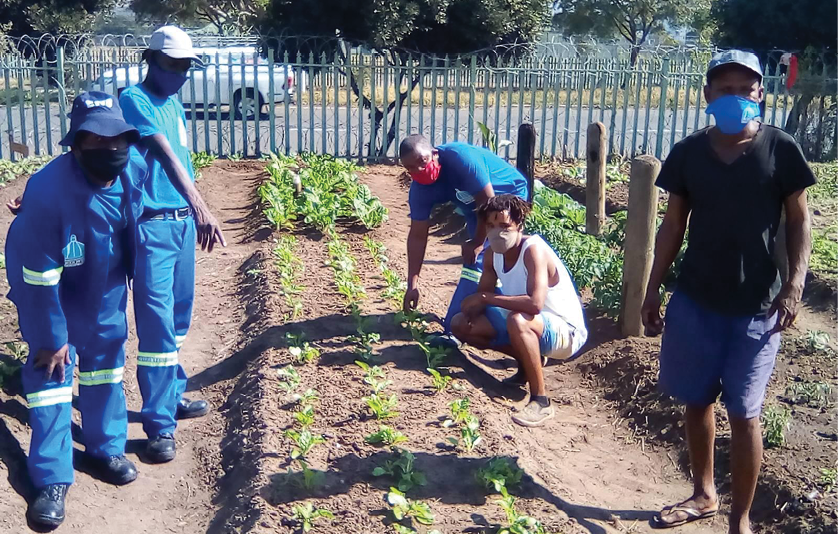
The Elangeni Green Zone grows and sells organic vegetables to leading supermarket Boxer Superstores and to members of the public. Spokesperson Mthokozisi Mathonsi says they took advantage of a programme offered by the eThekwini Municipality to empower homeless people.
In a bid to teach basic skills to the 2 200 homeless people staying in the city’s 12 homeless shelters, the municipality is working with the Department of Social Development to offer various training programmes, including an introductory computer and word processing course.
EThekwini Deputy Mayor Belinda Scott says they want to make Durban an inclusive, safe, resilient and sustainable city.
“With continuous interventions and comprehensive plans to aggressively address homelessness in the city, we are also contributing to the realisation of the National Drug Master Plan which aims to reduce supply and demand of drugs for non-medicinal use,” she says.
Mathonsi says the members of the inner-city farm approached the municipality for assistance after deciding to start a food garden near the homeless camp they were staying in and subsequently identified a suitable plot of land.
The proposal was in line with the city’s aim of empowering the homeless and assistance was given to get the project off the ground. Today, spinach, green beans, carrots, cauliflower, mint and coriander are produced.
The 10-member group’s innovative thinking has earned them two additional parcels of land they will use to expand from their North Beach-based garden.
Mathonsi says: “We have received another piece of land from the municipality in South Beach to start another garden. Meanwhile, an NGO in Umbumbulu on the South Coast has also invited us to use its land.”
In addition, the gardeners have partnered with Boxer Superstores to increase the quality of their produce.
Elangeni also donates some of its vegetables to the city’s soup kitchens. Mathonsi says that the charitable action was borne out of knowing what it is like to go to sleep on an empty stomach.
“When the Coronavirus hit in March, some of us who were working in part-time jobs found ourselves out of places to stay and out of food. When we first came to the camp with the homeless people, we realised how privileged we were and that we should try to contribute to their livelihood,” he says.
Homeless people in the city who want to learn basic skills can visit the municipality’s Safer Cities office or call 080 033 1011.
Teaching locals to grow their own food
Teaching locals to grow their own food SiboneloLetlotlo Modise (31) of Kuruman in the Northern Cape is a creative urban farmer who teaches people how to start their own food gardens. 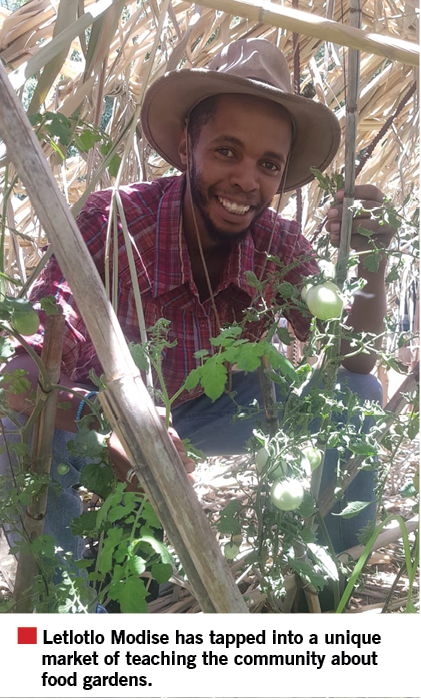
He is the owner of TréCulture, which specialises in designing small farms, greenhouses, indoor growing solutions and gardens for locals in Kuruman so that they can grow their own food.
“We teach people to produce quality fresh produce just about anywhere in their homes, be it on the balcony, a plot, backyard or even indoors. It depends on the needs of our clients,” he says.
He says because of the food insecurity challenge in many communities, young people are eager to start farming but they do not know how to get their food gardens going.
“I give the necessary support and teach them what they need to know. You do not need a large piece of land to do agriculture, especially subsistence farming,” he says.
He also has his own food garden at home and mainly grows herbs and leafy salads, which he supplies to local restaurants on demand. “I package my products under my own brand, TréCulture, in biodegradable packaging to create sustainability and a cleaner environment,” he says.
Although he has not managed to create jobs as yet, he hires workers when necessary. He believes the impact he has had in his community is equal to creating job opportunities because he has equipped people with skills that enable them to grow their own food and avoid hunger.
Modise started off in 2016 by specialising in aquaponics, which is a form of agriculture in which fish and plants grow together in water. He received R50 000 funding from the National Youth Development Agency to purchase equipment.
Unfortunately, he had to review his business plan because he found aquaponics expensive and his business was running at a loss. However, he did not give up but used his skills in agriculture to start his consultancy company.
For more information, contact Modise by emailing treasurecorp@gmail.com or send a WhatsApp to 063 529 7001.
Another chance to get your matric
Another chance to get your matric SiboneloIt is never too late to get your matric or to achieve the results you want, is the message behind the Department of Basic Education’s (DBE) Second Chance Matric Support Programme. 
Director of the programme, Dr Sandy Malapile, says a matric qualification is an absolute necessity because without it, many doors of opportunity remain closed.
“Sector Training and Education Authorities (SETAs), tasked with upskilling the nation through skills programmes and apprenticeships, also require that candidates have a matric,” says Dr Malapile.
Launched in January 2016, the Second Chance programme supports anyone – of any age – who wants to achieve or improve a matric qualification, subject-by-subject and on a part-time basis. There are no costs involved.
Who qualifies?
- People who want to improve their matric results, whether they wrote matric recently or even decades ago. Dr Malapile explains that a person wanting to obtain an engineering qualification, for instance, might need to improve their mathematics mark to qualify for the course.
- People who failed matric and want a second chance at passing.
- People who left school after passing Grade 9 (then Standard 7), are 21 or older, and wish to obtain their matric.
How to get started
Register at one of the 75 district education offices across the country or online at this website: www.eservices.gov.za.
Registration opened on 1 October and will close in February 2021. Learners either study on their own or at one of the 133 Second Chance centres where face-to-face learning takes place after-hours and on weekends.
Dr Malapile says only the top performing teachers in each district are employed at these centres. The centres are not available in every town and village, but are located in areas where the greatest number of people have registered, which means their location could change each year.
Both face-to-face learners and learners who study at home have access to a full range of study support services, from lessons broadcast on radio and television at specific times; to downloadable online material; and, for those without access to computers, printers and the internet−printed study material is sent to them by the DBE. People with a computer but no internet or data, may request a CD with all the study material, which will be mailed to them.
“Many adult learners may not have lots of time to devote to their studies. Luckily, they may decide how many subjects they want to do a year because they do not have to complete their matric within a set time.”
Once registered, the DBE will help each older learner choose the subjects they want to do and explain which ones are compulsory.
On qualifying, people who left school after 2008 receive a National Senior Certificate and those who left school earlier, receive an Amended Senior Certificate. However, Dr Malapile says both qualifications carry the same weight and, depending on the subjects taken and marks achieved, can be used to apply to universities and colleges.
Giving second chances
The DBE holds community roadshows to encourage people to enrol for the Second Chance programme. Tertiary education institutions and SETAs are invited to provide as much information as possible to interested people.
At many of these roadshows, Minister Angie Motshekga was asked by youth to introduce programmes that could assist young people to be more employable, says Dr Malapile.
In response, the DBE is launching a skills development programme this year that will target about 3.4 million young people who are not in employment, education or training. Courses will range from life skills – covering topics such as how to write a CV and what to do at a job interview; to basic skills courses, such as shoe repair, basic ITC and literacy.
Did you know?
- Regardless of whether you left school in the 60s or recently, you have to study the current curriculum.
- The South African education system also caters for people who dropped out before Grade Nine, through the Dep Did you know?
- Regardless of whether you left school in the 60s or recently, you have to study the current curriculum.
- The South African education system also caters for people who dropped out before Grade Nine, through the Department of Higher Education and Training’s adult basic education and training programme.
For more information, visit www.education.gov.za/Curriculum/SeniorCertificate/SCRegistration.aspx
Apply for an overseas scholarship
Apply for an overseas scholarship SiboneloApplications are already open for various international scholarships for 2021. 
If you have been thinking about furthering your studies overseas, your dream could come true, thanks to the Department of Higher Education, Science and Innovation’s invitation to South African students to apply for scholarships in other countries.
The scholarships are being facilitated by the department, which has partnerships with international institutions of higher learning that are offering scholarships to South African students.
Nhlanhla Ngulube (30) from Johannesburg was awarded the Chinese Government Scholarship in 2015 to pursue a Master’s Degree in International Relations at Jilin University in China.
“My studies were for two years. This opportunity further developed my interest in China-Africa relations, which I believe must be carefully studied and understood for the ultimate benefit and development of Africa. This has also become my area of passion and inspiration and has changed my life for the better,” he says.
Before receiving the scholarship, Ngulube held a Business Science Degree in Finance and Accounting from the University of Cape Town.
He returned to South Africa in 2017 and worked for a global consulting firm as a consultant. He recently joined a Japanese multinational organisation and will be travelling to Japan soon to start his new job.
A career in academia or scarce skills
The Minister of Higher Education, Science and Innovation, Blade Nzimande, says his department tries to prioritise post-graduate studies, particularly for students intending to pursue a career in academia or a scarce skill.
According to Minister Nzimande, various scholarships have different deadlines, priorities and offerings and the department’s international scholarships website maintains an up-to-date list of open scholarships, information for applicants and annual opportunities.
Scholarship opportunities
The following opportunities are currently available:
- Opportunities to study in Hungary are available through the 2021 Stipendium Hungaricum. The Hungarian government is offering 100 scholarships to South Africans to study at participating public universities in Hungary. There are bachelor, master’s and PhD scholarships available. All courses are taught in English. Application deadline: 15 January 2021. For more information, email Wendy Adams at adams.w@dhet.gov.za.
- The Embassy of France is offering scholarships to South Africans to pursue master’s or doctoral studies at French higher education institutions in 2021. Application deadline: 20 January 2021. For more information, visit www.southafrica-france-scholarships.com.
- The Swedish Institute Scholarships for South Africa programme is part of the Swedish government’s international awards scheme to develop global leaders who will contribute to the United Nations 2030 Agenda for Sustainable Development.
- Applications open in February 2021. To apply for a scholarship, applicants must have applied to a Swedish university by 15 January via the central application system at www.universityadmissions.se/intl/start.
- Each year the Swiss Confederation awards Government Excellence Scholarships to promote international exchange and research cooperation between Switzerland and over 180 other countries. The Swiss Government Excellence Scholarships are aimed at young researchers who have completed a master’s degree or PhD. For more information, email pretoria.science@eda.admin.ch.
- The German Academic Exchange Service is offering funding to South Africans for full-time master’s or PhD degrees in another sub-Saharan African country as part of its In-Country/In-Region Scholarship Programme. Opportunities are available in a range of fields in Benin, Burkina Faso, Ghana, Nigeria, Ethiopia, Kenya, Sudan, Tanzania, Uganda and Malawi. For more information, visit www2.daad.de/deutschland/stipendium/datenbank/en/21148-scholarship.
- The Embassy of Ireland in South Africa, in partnership with the Department of Higher Education and Training and Canon Collins Trust, offers scholarships for a one-year master’s degree in Ireland. The Kader Asmal Fellowship honours the late Professor Kader Asmal, who taught law at Trinity College in Dublin for 27 years. Applications for 2021 are closed, but applications for 2022 will open next year. For more information, email Ruth Roberts at Roberts.r@dhet.gov.za.
For general information about opportunities to study abroad and to view information about other scholarships open for application, visit the International Scholarships website www.internationalscholarships.dhet.gov.za.
New strategy to stamp out corruption
New strategy to stamp out corruption SiboneloA new PLAN to tackle corruption in South Africa was recently approved by Cabinet. 
The new National Anti-Corruption Strategy (NACS) is set to help law enforcement agencies root out corruption.
This is according to the head of the Special Investigating Unit (SIU) Advocate Andy Mothibi, whose organisation played a role in the strategy’s development. The SIU’s main job is to investigate allegations of corruption and collect evidence to build a case against perpetrators.
As one of the key law enforcement agencies under the Department of Justice and Correctional Services, Adv Mothibi says the SIU will help make sure that the strategy is properly implemented.
He says the strategy is the result of a countrywide consultation process with various sectors, including business, government and civil society.
The NACS covers six pillars, which include:
- promoting and encouraging active citizenry,
- whistle-blowing,
- integrity and transparency,
- advancing the professionalisation of employees,
- enhancing governance in institutions, and
- strengthening resourcing and coordination of performance and accountability.
“The strategy also speaks to the involvement of civil society and the prevention of corruption, which is very important when fighting against corruption,” he says.
“We have already started with some of the initiatives that play a role in preventing corruption. We have the Health Sector Anti-Corruption Forum and we have just had the inaugural meeting of the Local Government Anti-Corruption Forum. These forums include government representatives and civil society, and they cover the prevention side and the investigation side,” he explains.
How corruption affects the economy
Adv Mothibi says corruption negatively affects the economy of the country.
“Corruption in itself actually drains out the coffers of government unlawfully. As a result, government becomes unable to deliver on most of the critical areas that are meant for the improvement of the lives of ordinary citizens. This affects the livelihoods of the people, and if people’s lives are negatively affected, they cannot participate in economic activities,” he explains.
Report corruption on the SIU anonymous whistle-blower hotline at 0800 037 774 or email siu@whistleblowing.co.za
School garden sustaining learners
School garden sustaining learners SiboneloPhelang School for Learners with Special Educational Needs is now able to recycle food waste at the school’s onsite garden, thanks to a donation of 10 composters, hand garden tools, fruit trees and seedlings from Mpact Plastic Containers and the Ekurhuleni Metropolitan Municipality (EMM).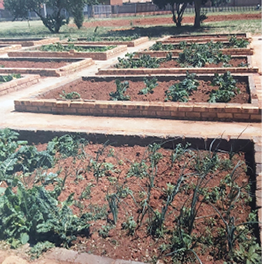
Based in KwaThema, Eku- rhuleni, the school is well-known for its food garden that’s managed by learners, with help from educators.
The donation aims to encourage the school’s existing value of agriculture and enable it to generate its own compost to fertilise its food garden’s soil.
Managing director of Mpact Plastic Containers Loutjie De Jongh says the company has joined the campaign to help address the country’s challenge of a shortage of landfill space. “We believe this can be achieved if we recycle organic waste, by creating compost.”
Ekurhuleni MMC for Environmental Resource and Waste Management Makhosazana Mabaso says the initiative is sustainable and will help uplift the community from poverty.
“Encouraging residents to produce compost from some of their organic waste will also encourage them to start gardens and produce their own fruits and vegetables. This will also ensure our people are eating healthily and have control of what goes into their own food,” she says.
School principal Tshepo Ledwaba says the donation will help expand and improve the school’s gardening project.
“Gardening is one of the skills we offer our learners. The donation will enable them to learn new and modern ways of taking care of their gardens and reusing recyclable material. They will also learn the importance of recycling,” he says.
The Mpact composters will speed up the process of breaking down organic waste, such as vegetable peels, garden clippings and leaves, into compost.
“This donation gives us the chance to envision a positive future for our learners… This partnership will certainly bare fruits of success,” says Ledwaba.
“The programme will entrench the culture of reduce, reuse and recycle in young minds, which will become sustainable practices in our communities and save our environment for the next generations to enjoy,” adds Mabaso.
Mpact Recycling also runs the Ronnie Recycler schools and communities programme, in which paper banks are placed at schools to collect and contain paper waste for recycling.
For more information about Mpact’s composters and the Ronnie Recycler schools and communities programme, visit www.mpcsa.co.za.
Co-parenting is key for child growth
Co-parenting is key for child growth UrsulaWhen parents are not in a relationship, they need to put their child’s interests above any negative feelings they may have for each other. 
For children to reach their full potential, it is vitally important that they are raised in a safe, caring environment. For this to be achieved, both the mother and the father need to play an active role in parenting, even if the couple is separated.
What is co-parenting?
Co-parenting means to share the duties of bringing up a child. The term especially refers to parents who are separated or not in a relationship.
Petunia Seabi-Mathope, the Chief Family Advocate for the Department of Justice, says to successfully co-parent, the parents need to put aside their past differences and focus on their children’s needs.
Co-parenting plans are often worked out during the divorce proceedings and a properly laid-out plan can have immense benefits for children.
“Co-parenting is important because children get a clear message that both parents love them and want them. It provides an environment for the continuation or development of high-quality parent-child relationships, allowing both parents to remain authoritative, responsible, involved, attached, emotionally available, supportive and focused on their children’s day-to-day lives,” says Adv Seabi-Mathope.
She says when parents are unable to co-parent, it can result in destructive ‘parallel parenting’.
“This means that each parent makes decisions about the children with little discussion with the other parent. If this continues, children often get put in the middle of their parents’ conflict.”
Support from the Office of the Family Advocate
The Department of Justice employs family advocates – family law specialists who provide free assistance to parents to help them reach an agreement on the care, guardianship and maintenance of a child. There are family advocates in all nine provinces.
Adv Seabi-Mathope says that family advocates can help parents reach an agreement on co-parenting, through the creation of a parenting plan.
“A parenting plan is an agreement between parents/parties who both hold parental responsibilities and rights. The plan regulates aspects such as where and with whom the child is to live, the maintenance of the child, contact between the child and any of the parents, and the schooling and religious upbringing of the child.”
By engaging the services of a family advocate, parties can reach an agreement without the need for a court trial, which can save significant legal costs and time.
Tips for proper co-parenting
In the case of a divorce or separation, parents need to work together to come up with arrangements that are best suited to a child’s needs.
“Parents should look to create a consistent parenting style, even if the child is moving between two homes. This includes consistent rules for the child and similar schedules for things like mealtimes, homework and bedtimes,” says Adv Seabi-Mathope.
There should also be a regular schedule set in place for visitation hours and transfer of the child between households, and parents should stick to these schedules as far as possible so that the child can adjust better to their new situation.
In terms of education, parents should ask teachers to send any letters or other correspondences to both parents, so that any issues can be discussed together.
Perspectives from a co-parent
Zibuse Kunene has a daughter from a previous relationship. He says that parents should first and foremost realise that co-parenting is not easy.
“We had challenges at first, with a lot of fights and disagreements, but now we have reached common ground,” says Kunene.
He advises that parents need to focus on what is most important, which is the wellbeing of their child.
“When you focus on what is important, you shift the focus from yourself to your child. You need to consult each other about important decisions regarding your child and have a communication line open with the other parent”.
For further information, visit the Department of Justice website or call the main office of the Family Advocate at 012 357 8022.
SheTrades connects women entrepreneurs
SheTrades connects women entrepreneurs UrsulaWomen entrepreneurs have another excellent platform to grow themselves and their businesses, through a new initiative launched by the Department of Small Business Development, the Small Enterprise Development Agency (SEDA) and the International Trade Centre (ITC). 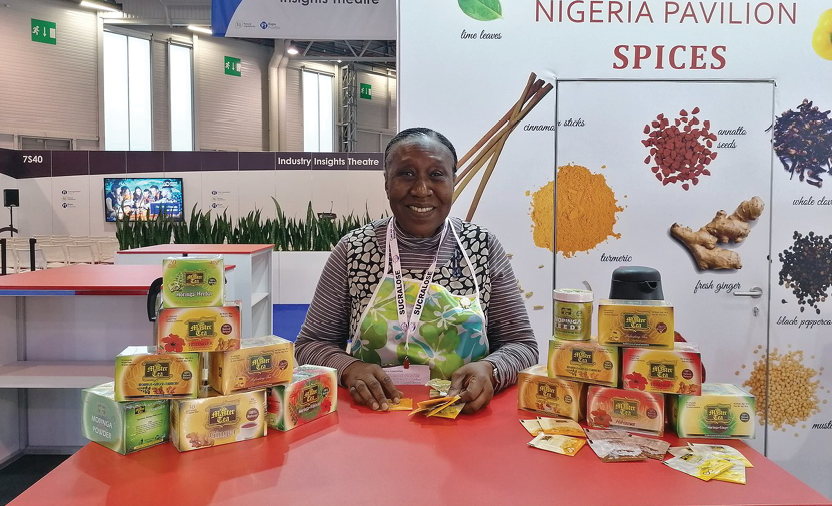
ITC runs a programme called SheTrades, which seeks to connect women-owned small and medium businesses with local, regional and international markets. SheTrades recently launched in South Africa and Liya Cherian, a specialist of export development at SEDA, says this exciting new initiative provides a number of opportunities for women entrepreneurs, who can sign up for free membership to the SheTrades platform.
“Women-owned business can connect with other businesses and build a strong network for trade. They can also sell their products and services by posting offers on the platform. Buyers can then see these offers and make orders.”
Cherian adds that members are also given access to a wide variety of free e-learning materials. “The platform has a Virtual Learning Space which offers online courses, live webinars and market tools that cover various trade-related topics, to equip women entrepreneurs with knowledge and skills to grow their businesses.”
SheTrade South Africa’s goal is to provide at least 50 000 women-owned businesses with a unique network and platform to connect to markets by 2023.
The initiative has already been launched in several other African countries and regions, including Zambia, Ghana, Gambia, Ethiopia, Nigeria and West Africa. Thousands of women-owned businesses have benefitted from the platform, with some notable success stories.
In Nigeria, Teju and Funke Bolujoko run a business that sells herbal teas, called Master Teas. Since joining SheTrades in 2019, Funke has attended various workshops and webinars offered by the platform, focusing on topics such as supply chain management, export market strategy, quality management and food safety, which have helped her to grow her business and receive her first orders from supermarket giant Shoprite.
“By the grace of God, I believe it is the beginning of greater things to come because of the visibility the Master Tea products had received from exhibiting under the SheTrades pavilion at two international fairs,” says Bolujoko.
If you are a female entrepreneur and want to take your business to the next level, you can sign up for the SheTrades South Africa programme.
Register at shetrades.com. For more information, call Liya Cherian from SEDA at 012 441 1109.
Be aware of snakes this summer
Be aware of snakes this summer UrsulaWith summer in full swing, it’s time to be even more aware of snakes. 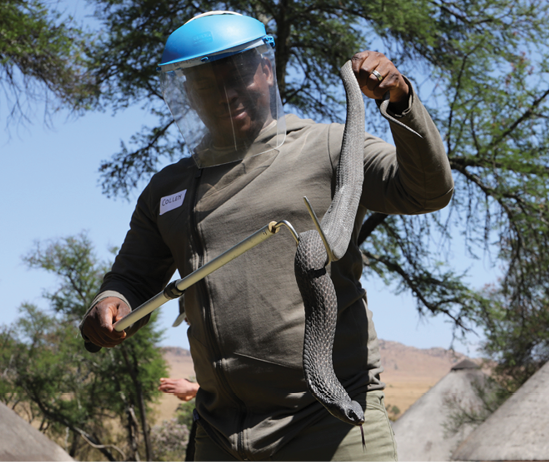
“They are commonly seen in summer, especially after heavy rains,” says African Snakebite Institute (ASI) Manager Ashley Kemp.
“This is because some snakes are flooded from their shelters and many species feed on frogs – an abundant food source in the rainy season,” she adds.
Although largely misunderstood and feared, snakes try to avoid humans and only strike out to bite if they can’t escape.
The main snakebite season is in the warm summer months, from November to April.
“Snakes are attracted to dark and neglected areas and will take refuge under sheets of corrugated iron, building rubble, firewood, grass heaps, rock piles and rubbish tips. Most snakes feed on lizards, rodents, frogs and toads and will be attracted to gardens where these creatures live.
ASI has over 600 snake removers across the country listed on its free app, ASI Snakes, which can be downloaded from its website (www.africansnakebiteinstitute.com).
If GPS is activated on your phone, the app will give you a list of snake removers in your area; how far away they are and their phone number. The app also has several other useful features, such as snake profiles, posters, a list of hospitals near you and first aid information for a snakebite.
“If you see a snake, keep children and pets away. If the snake is in the house and you are comfortable with the idea, throw a towel over it and wait for the snake remover. The snake normally stays curled up under the towel until uncovered. Always keep an eye on the snake, as this will help the remover to easily locate it,” says Kemp.
What to do if you see a snake:
- Don’t try to kill it. The closer you get, the greater the chance of being bitten.
- Don’t pick up snakes by hand.
- Don’t touch it if it looks dead. Many snakes pretend to be dead when they are scared.
If you are bitten, keep calm and go to a hospital as soon as possible. If you can do so safely, take a photograph of the snake. Do not try to catch it, you will be bitten again.
“A number of snakebites occur in the early evening and victims are bitten when standing on the snake. If walking around at night, wear closed shoes and use a torch to light the way,” says Kemp.
For more information about snakes and snakebites, visit www.africansnakebiteinstitute.com
Engines to rev up pupils’ future
Engines to rev up pupils’ future UrsulaFord engines valued at R7,8 million have been donated to technical schools to promote youth skills development and training in the automotive industry. 
A partnership between one of the world’s leading car producers and the Department of Basic Education (DBE) is set to develop the skills of pupils from 240 technical schools across the country.
Car manufacturer Ford is donating 240 engines for learning at schools that teach technical subjects such as mechanical (automotive) technology. The engines include the new 2.0 Bi-Turbo and 2.0 Single Turbo engines, as well as the 2.2 and 3.2-litre Duratorq TDCi engines. These are used in a variety of South African-built models, such as the Ford Ranger pickup, Ranger Raptor off-road pickup and the Everest sport utility vehicle, as well as the European-built Ford Transit.
One of the benefiting schools is Otto du Plessis High School in Port Elizabeth, where each year 60 pupils between grades 10 and 12 will have the opportunity to use their engine for practical learning, which will equip them for further studies in related fields.
Principal at the school Tinus van Eeden says that the 2.2 litre Duratorq TDCi engine will be used to teach the pupils how to take the engine apart and re-assemble it. He says that pupils will also learn how to identify the different parts of an engine.
Chairperson of the school governing body Morne Scott says Ford’s Struandale Engine Plant, where the donated engines were produced, is located across the road from the school.
“The reality is that a lot of our former pupils end up working at the Ford plant so having the engine at the school to learn from will help them find jobs quicker. The kids at the school will be readily equipped for the working environment,” says Scott.
Accepting the donation, DBE Deputy Minister Reginah Mhaule says the engines will enhance the teaching of mechanical technology.
“We are confident that giving learners at school level access to our world-class engines will foster new interest in automotive technology, and will inspire the next generation of engineers, designers and technicians who will lead future development and innovation in this sector,” says Struandale Engine Plant manager Shawn Govender.
Government opens up the job market
Government opens up the job market UrsulaOver 800 000 jobs will be created by the Presidential Employment Stimulus Programme.
The Presidential Employment Stimulus Programme (PESP), led by the Department of Public Works and Infrastructure (DPWI) and the Presidency’s Project Management Office, will see government invest R12.6 billion into job creation programmes and projects in the current financial year.
The stimulus programme is part of the Economic Recovery and Reconstruction Plan.
Lwandile Sawhule (30), a beneficiary of the PESP, now has a job after being unemployed for five years. Sawhule, a clerk at Mavuso Primary School in Nqamakwe in the Eastern Cape, says his salary will help him support his son, buy groceries and subsidise the upkeep of his livestock.
“The programme is very important as I have been able to find a job in my community. We live in a rural area where jobs are few and far between,” he says.
The Presidency and Department of Trade, Industry and Competition (dtic), through the Industrial Development Corporation, will champion the Social Employment Fund that aims to find employment for 35 000 people. The dtic will also support 8 000 services sector development incentives.
Public Works and Infrastructure Minister Patricia De Lille says: “The Department of Social Development (DSD) will support over 100 000 early childhood development practitioners with an investment of R588.7 million from government for income support, job retention and registration support programmes.”
The reappointment of 994 social workers is also on track, and a further 815 unemployed social workers are being recruited.
The stimulus programme will also see:
- the DPWI create 1 560 job opportunities through the professional services programme;
- the Department of Basic Education recruit 344 933 teaching assistants and support staff for schools;
- the DSD’s income relief, job retention and registration support programme assist 111 142 people;
- the Department of Agriculture, Land Reform and Rural Development provide support to 74 626 farmers through the Subsistence Producer Relief Fund;
- the Department of Environment, Forestry and Fisheries invest over R1.9 million to create 50 311 jobs;
- the Department of Sport, Arts and Culture support the creative, cultural and sport sectors in creating 34 070 jobs;
- the National Department of Health create 5 531 jobs by expanding the community health workers, outreach team leaders and nurses programme;
- the Department of Transport’s Provincial Roads Maintenance Programme create 37 079 job opportunities;
- the Department of Cooperative Governance and Traditional Affairs create 25 000 jobs;
- the Department of Science and Innovation’s graduate programmes create 1 900 jobs;
- 5 000 youth-owned enterprises being supported by the Department of Women, Youth and Persons with Disabilities; and
- provincial governments contributing 50 000 jobs and metros 32 663.
Injury on duty: Compensation Fund, Occupational Injuries or Diseases Compensation Fund
Injury on duty: Compensation Fund, Occupational Injuries or Diseases Compensation Fund Ursula
When you sustain an injury while on duty or contract an occupational disease including Covid-19, here are simple steps to follow:
1. Report your injury or disease immediately to your employer or supervisor. Your employer is legally responsible for reporting your injury on duty to the Compensation Fund within seven (7) days of receiving notice from you and within fourteen (14) days when it is an occupational disease as well as submitting the necessary forms and documents.
2. When you go to hospital or the doctor of your own choice, you should take the duly completed, signed and dated, Employers Report of an Accident form (W.CI.2 – Part B) from your employer, with you. The employer can also register your claim electronically and give you the claim number for you to inform your doctor.
3. When the doctor gives you the First Medical Report (W.CI.4) and Progress/Final Medical Reports (W. CI.5), you must give them to your employer to send to the Compensation Fund.
4. If you feel that your employer does not cooperate or assist you, or if you think your accident has not been reported to the Compensation Fund, or it is taking too long, go to your nearest Provincial Office or nearest Labour Centre and report this.
5. If you qualify for compensation, you have to submit the following documents to the Compensation Fund:
- Form (W.Ac.33 obtainable at your Provincial Office or your nearest Labour Centre or download if from www.labour.gov.za) must be duly completed and signed by the employee and stamped and dated by the bank
- A certified original copy of your ID
- First page of your bank statement, not older than three months and
- Proof of residence i.e. water and electricity bill, etc.
- These documents should be the ORIGINAL documents and not older than three months.
6. The reporting process for Covid-19 claims are exactly the same as for any other claim. The following documents are required for Covid-19 claims:
- Employer’s Report on an Occupational Disease (W.Cl. 1) duly completed, signed and dated.
- Notice of an Occupational Disease and Claim for Compensation (W.Cl. 14)
- First Medical Report (W.Cl.22)
- Exposure and Medical Questionnaire
- Exposure history (W.Cl.110) and/or any other appropriate employment history which may include any information which may be helpful to the Compensation Commissioner
- Pathology results (RT-PCR Cov -2 RNA) confirming the existence of Covid-19 on sputum, orophanryngeal or nasophanryngeal specimen taken at the time of screening.
7. It is your duty to follow up with the Compensation Fund to check the status of your claim.
For more information, go to your nearest : Labour Centre or Provincial Office or call 0860 105 350 or email at cfcallcentre@labour.gov.za
Baseball veteran goes to bat for local kids
Baseball veteran goes to bat for local kids UrsulaLwazi Mlondolozi (33), a baseball enthusiast from Mdantsane in the Eastern Cape, says one of the aims of the Mdantsane Eagles baseball club is to keep local children from getting up to mischief because they have nothing better to do. 
He says the area does not have a soccer club and often children play on the streets, where they are at risk of being hit by cars and are often exposed to negative influences.
The club, which he runs, has 30 permanent players but welcomes children who walk in off the street and ask to play. Often, this means an extra 20 children join in on practice sessions.
To develop the talent shown by the youngsters, Mlondolozi organises training by international coaches, through the United States-based Play Global! - a non-profit organisation. This partnership has resulted in expert coaches, such as Anthony Bennett, Zach Graefser and Kevin Healy, training the youngsters.
“In 2017, I introduced the Billy Magengelele Baseball Revival Programme, which ensures that every time there is a coach in the province, we visit other districts to enable more children to benefit.”
Mlondolozi says that Magengelele introduced him to baseball. “Baseball was being played at a school that was located in front of my house. One day, a ball broke a window at home and when I returned it, Magengelele asked me to grab a bat and hit a ball and from that day, I never looked back.”
Magengelele’s club had been in existence since 1993 but in 2007, it nearly shut down because Magengelele was no longer around to look after the team. Concerned by the state of the club, Mlondolozi took over the reins in 2013.
“In 2013, I noticed that the club was dead and I went back to Magengelele and talked to him about reviving it,” he says.
Mlondolozi, who is also the first vice president of the Eastern Cape Baseball Association, also organises tournaments for schools in the township. The tournaments are hosted twice a year and about 300 school pupils participate.
He says: “We have about 14 schools in Mdantsane that participate and we host tournaments at least twice a year.”
The Mdantsane Eagles’ under 18 team finished fourth among 11 teams at a national tournament last year.
Artify your art online
Artify your art online UrsulaYou can now buy and sell visual art online at Artify, the Hilton Arts Festival’s online art gallery. 
Buying and selling art at a shop or market is slowly becoming a thing of the past, especially with the Hilton Arts Festival’s online art gallery Artify.
According to festival director Sue Clarence, Artify is an ideal platform for visual artists of all genres to make their work available to the public.
“Although it is just a few months old, more than 55 artists who have already joined Artify are thrilled with the ease with which the site works, the quality of the art for sale and, most importantly, that there have already been sales,” Clarence says.
Artify sells any style of visual art and any medium, including sculptures, photography, watercolours, oils, pottery, charcoal and acrylic, to name but a few.
“The beauty of selling products online is that your work is exposed to a national and international audience,” says Clarence.
She adds that Artify offers a door-to-door courier service between buyer and seller, and there are plans to include sections on pop, graffiti, anime, bespoke craft and contemporary African work.
The Hilton Arts Festival
The Hilton Arts Festival began in 1993 and has grown to be one of the leading theatre festivals in the country.
It aims to bring the pick of South African theatre to KwaZulu-Natal and support it with a programme of music, lectures, visual arts and crafts. It also has an increasing lifestyle element as well.
The festival, administered by the Arts Trust of South Africa, attracts about 25 000 people annually.
Hilton College is both the host and a sponsor, and the facilities are made available to the festival free of charge. Proposed dates for 2021 are 10 to 12 September.
For more information, visit Artify at http://artify.africa, call 082 469 7222 or email admin@hiltonfestival.co.za